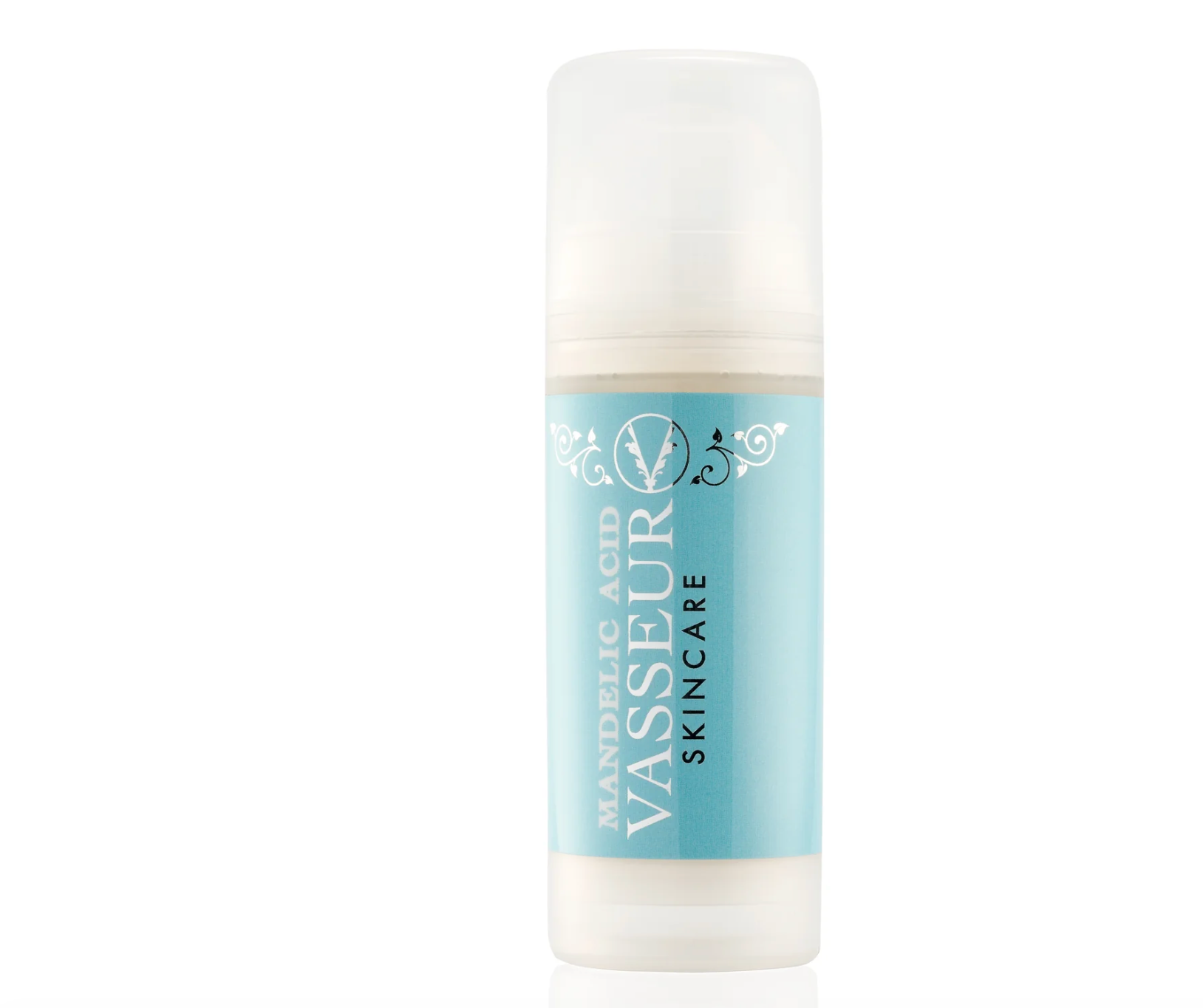The Magic of Mandelic Acid: Benefits of Using It in Skincare

We all love that glowing and blemish-free skin, right? But let's admit it, achieving flawless skin is not a one-and-done deal. It takes consistency, the right skincare routine, and of course, the right skincare products. One of the most popular ingredients in skincare right now is mandelic acid. Not familiar with it? Don't worry, we got you covered. In this blog post, we will be discussing the magic of mandelic acid and the benefits of using it in your skincare routine.
1. Mandelic Acid: The Gentle Giant
Mandelic acid is an alpha-hydroxy acid (AHA) that is derived from bitter almonds. Unlike other AHAs such as glycolic or lactic acid, mandelic acid has a larger molecular size which means it penetrates the skin more slowly, making it a gentler option for exfoliation. It works by breaking down the glue that holds dead skin cells together, allowing them to be sloughed off, revealing a brighter and smoother complexion.
2. Fights Acne and Clears Hyperpigmentation
Mandelic acid is also effective when it comes to treating acne-prone skin. It has antibacterial properties that kill off acne-causing bacteria and help to control oil production. For those with post-acne hyperpigmentation, mandelic acid is also a great option. Its exfoliating properties help to fade dark spots and improve overall skin tone, leaving you with a more even complexion.
3. Anti-Aging Benefits
Mandelic acid also has anti-aging benefits. As we age, our cellular turnover slows down, which can lead to dull skin and fine lines. Mandelic acid helps to speed up the process by shedding the old dead skin cells and allowing new ones to come to the surface. This, in turn, improves skin texture, reduces the appearance of fine lines, and leaves your skin looking more youthful and radiant.
4. Safe for All Skin Types
One of the great things about mandelic acid is that it is safe for all skin types. Since it is a gentler exfoliating option than other AHAs, it is less likely to cause irritation or sensitivity. If you have sensitive skin or are new to acids, mandelic acid is a great place to start. It is also safe for those with darker skin tones who may be more prone to hyperpigmentation as it is a less aggressive exfoliant.
5. Can Be Incorporated into Your Existing Skincare Routine
Adding mandelic acid to your skincare routine is easy-peasy. It can be found in various forms such as toners, serums, and exfoliating pads. If you're new to using acids, start by incorporating it once or twice a week and work your way up to more frequent use. It's best to use it at night as it can increase sun sensitivity.
In conclusion, mandelic acid is a versatile and effective ingredient that should be added to your skincare routine. It's gentle yet effective, making it a great option for those with sensitive skin or just new to acids. From treating acne to improving skin texture and tone and pigmentation mandelic acid is a true skincare hero. So go ahead, add this magical ingredient to your cart, and get ready for that flawless, glowing skin you've always wanted.
If you are in the San Diego area and would like to learn more about our services or book an appointment today, click here. If you are new to Vasseur Skincare or needed help choosing the right skincare, click here. If you would like to talk with one of our Vasseur team members for a free consultation, click here and we will get back with you as soon as we can (please allow 1-3 business days for a response).
Leave a comment
Comments will be approved before showing up.
Also in Education
Copper Serum and Red Light Therapy: Your New Skincare Power Duo
Learn how combining copper peptide serum with red light therapy can boost collagen, reduce wrinkles, and enhance your skin's health for radiant results.
Green Tea Serum & Red Light Therapy: The Ultimate Skin Duo
Discover how combining green tea serum with red light therapy can boost collagen, fight aging, and give you radiant skin. Learn how to use them together.
Boost Red Light Therapy with Copper Peptide & Green Tea Serums
Learn how to combine red light therapy with copper peptide and green tea serums to enhance collagen production, reduce wrinkles, and achieve radiant skin.